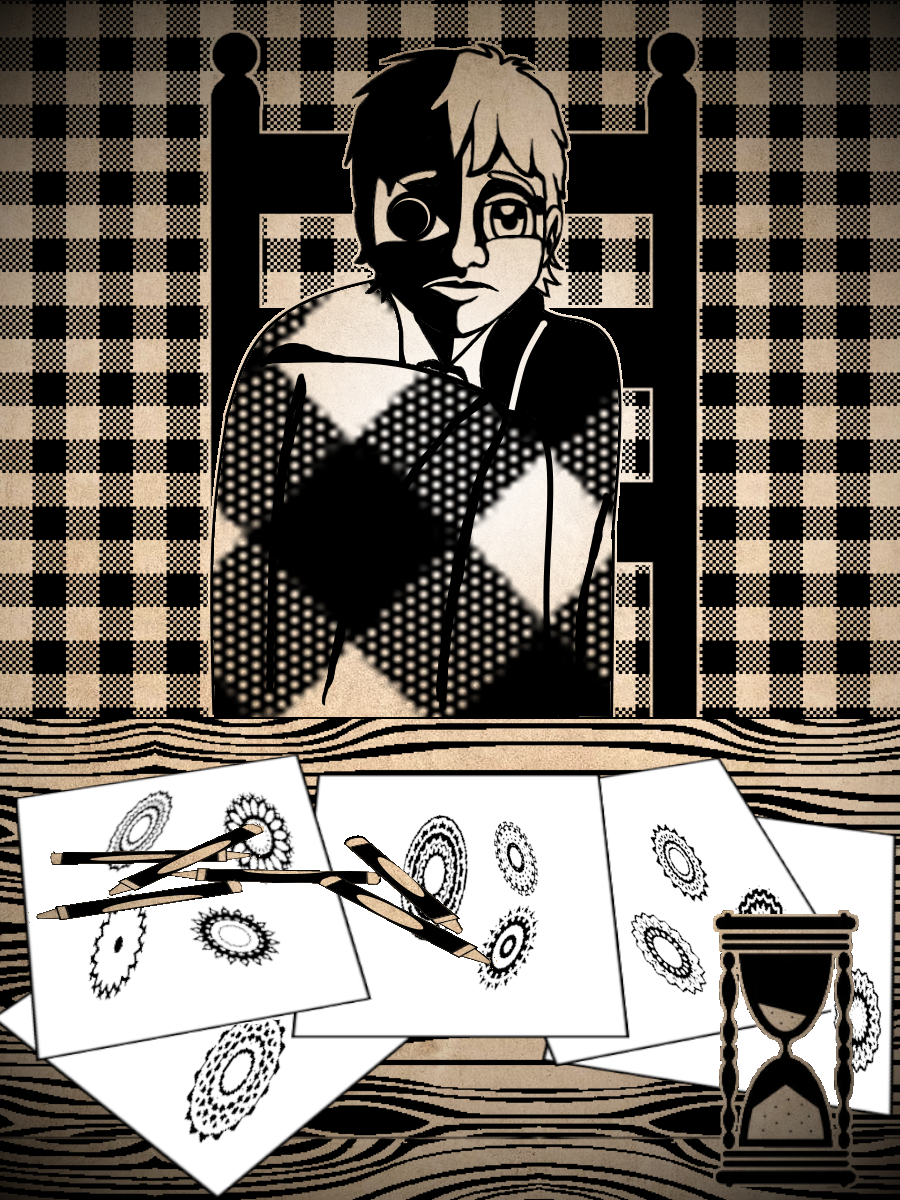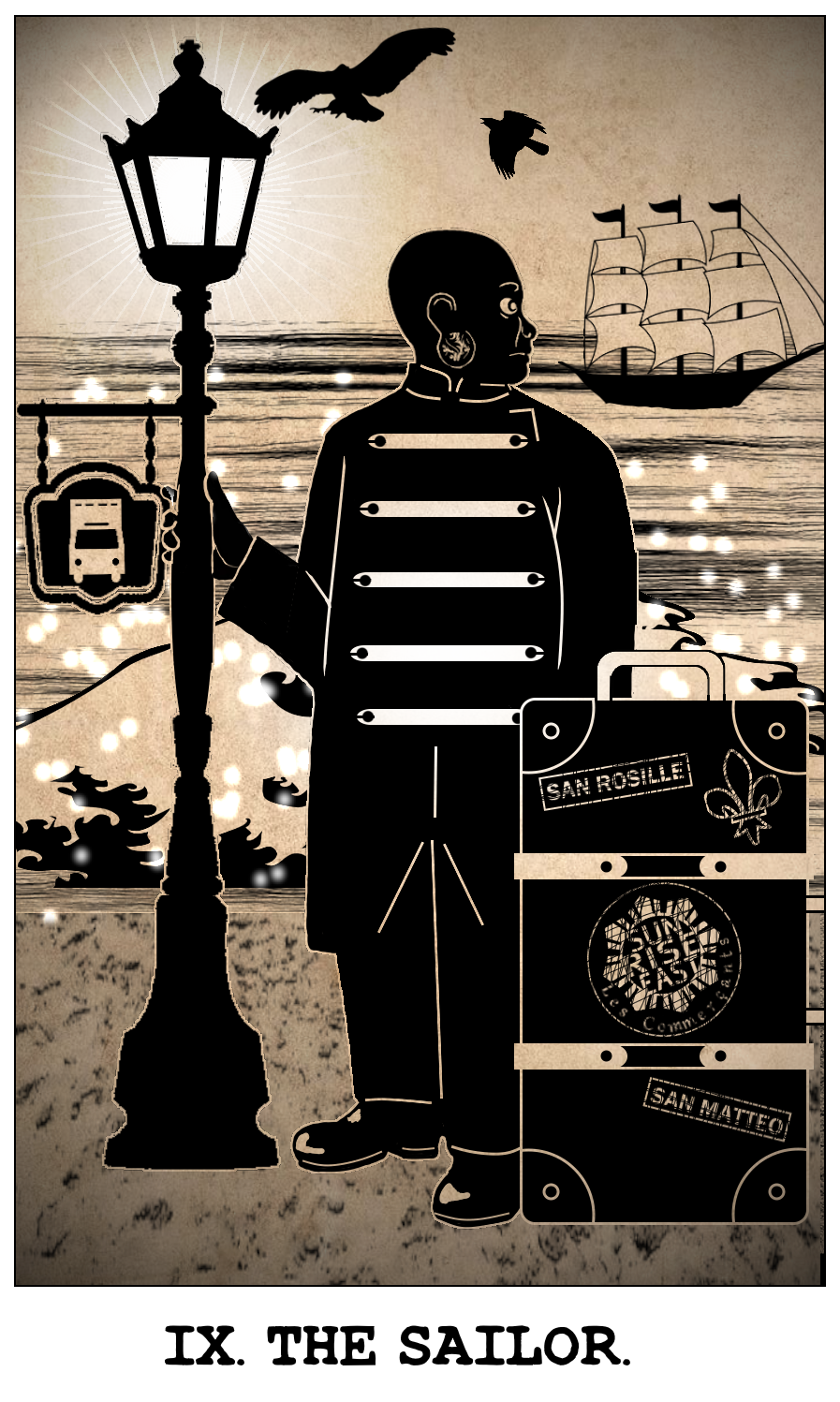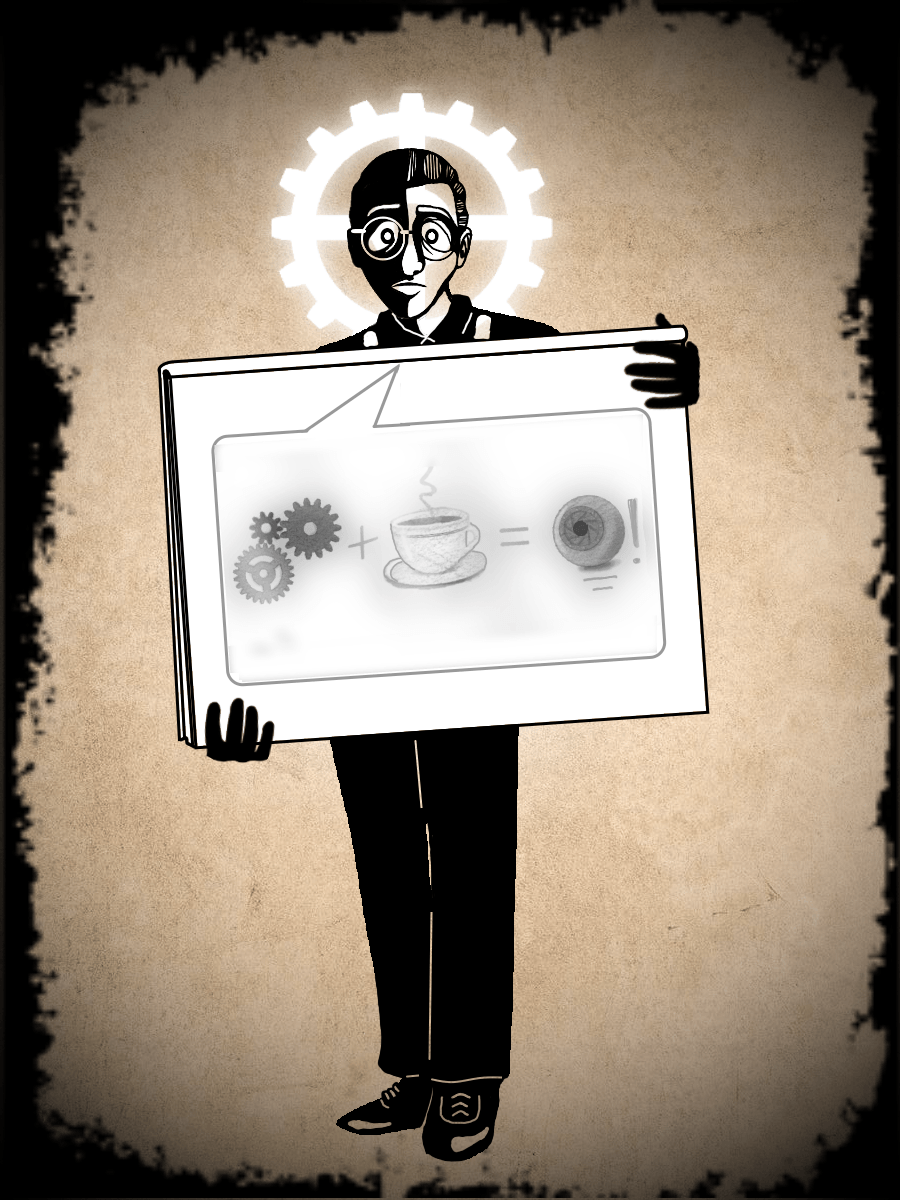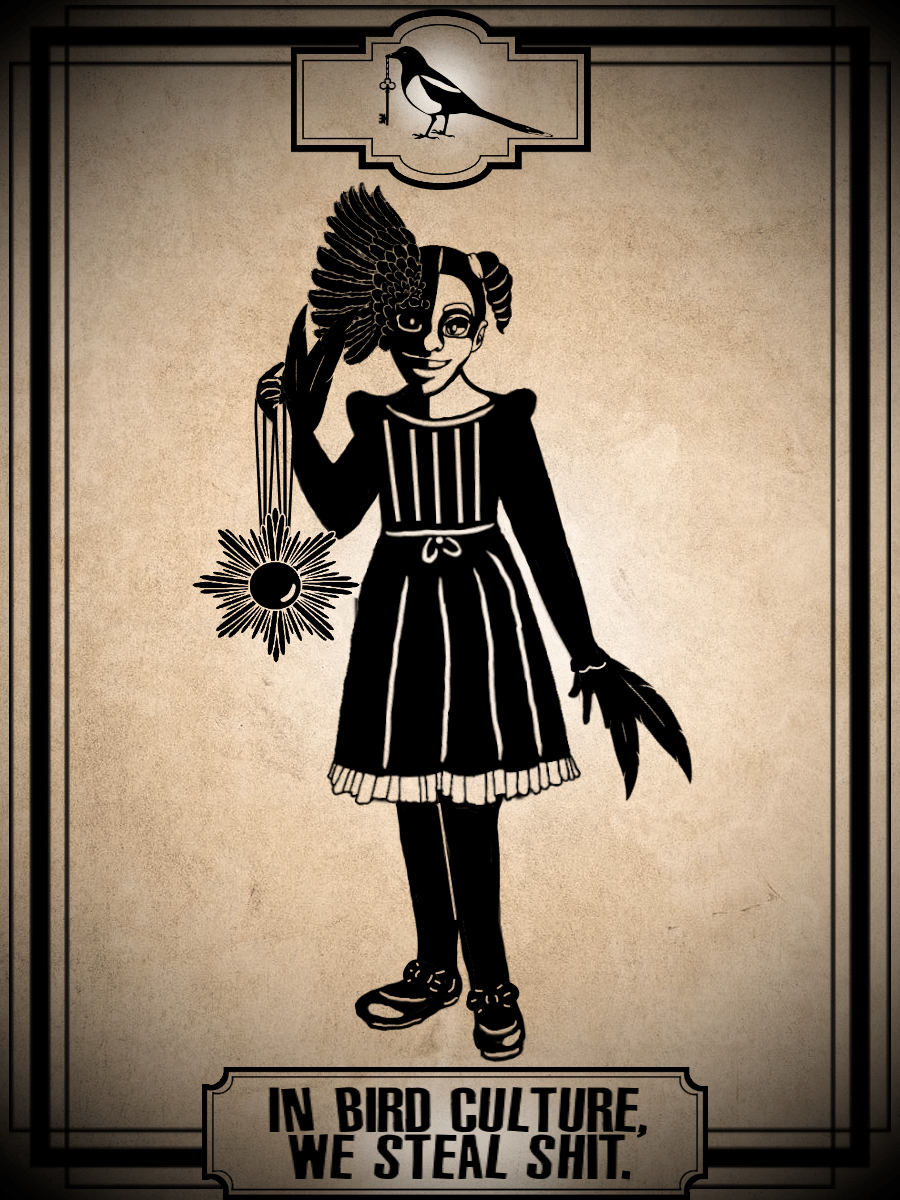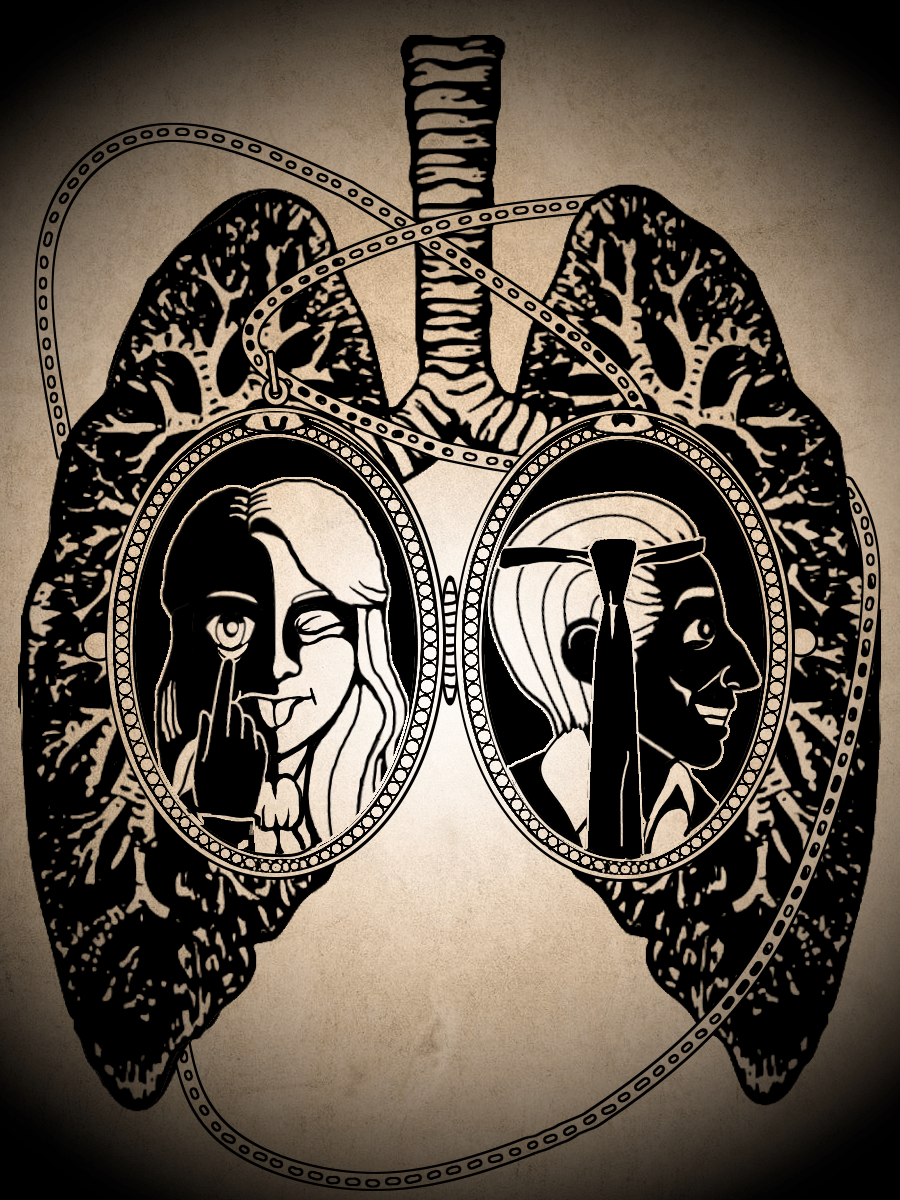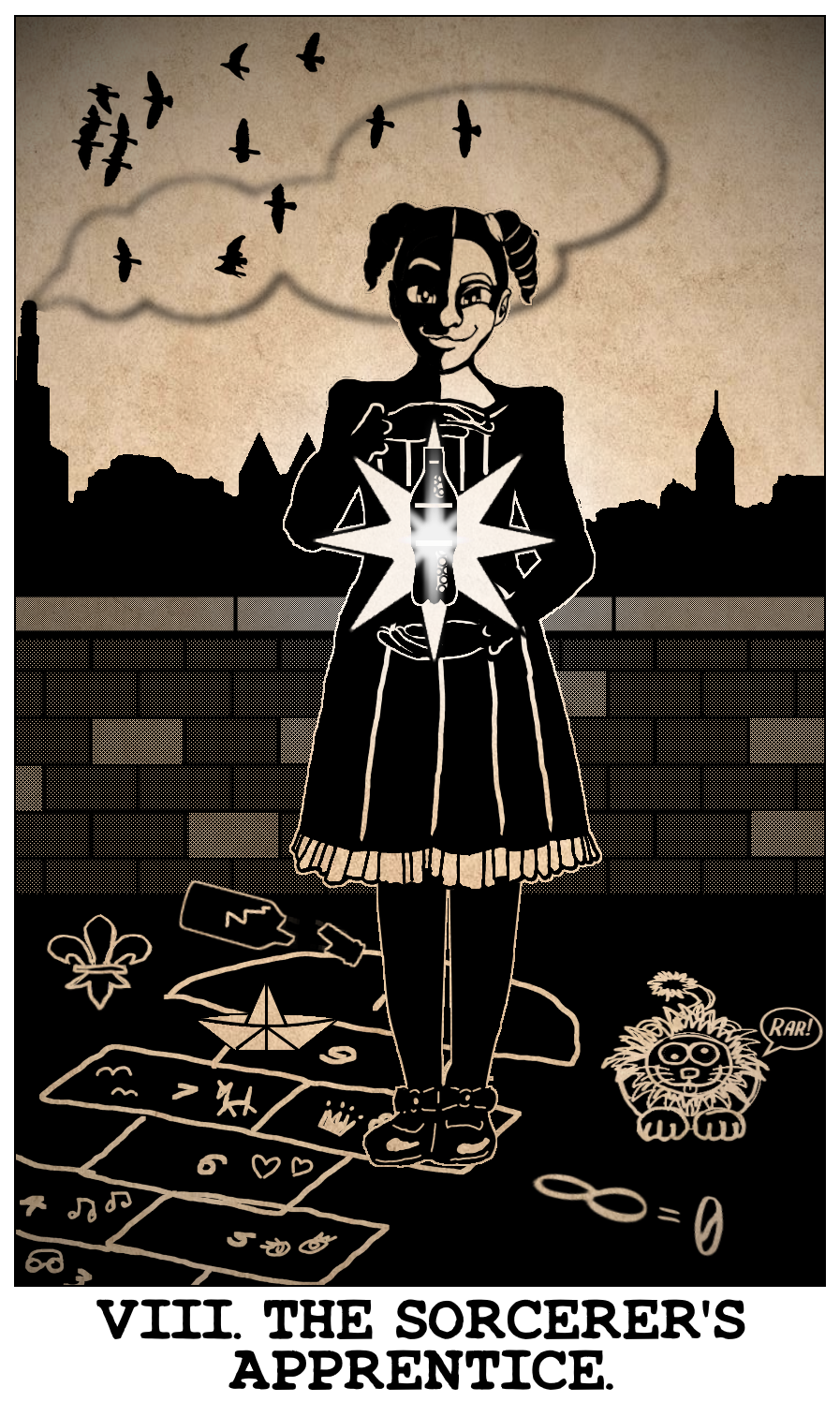Money meant more than movies and fun and independence, it was also rent and responsibility and getting things done. When Mordecai had expressed his intent to settle up with Hyacinth, or at least schedule some kind of payment plan, she pulled out the big glass jar and set it back on the kitchen counter.
The big glass jar, empty after the emergency with the burned girls, had disappeared some time after Erik got hurt. It had stayed empty, and hidden, due to the circumstances.
It was about ten inches high and eight inches in diameter, with a design that suggested a barrel. It had once held pickles. The lid and the label had gone ages ago.
“Just keep it full,” she said, which had been their agreement since Julia.
Denominations were less important than the metal itself. A jar full of pennies was fine — even half-pennies, though it wasn’t likely he’d pick up that much old money unless he went to a bank and requested it.
A steady supply of loose change did double duty as liquid assets and surgical supplies.
He did not, she clarified, as he attempted to clean out his violin case, need to fill the entire thing now, just put something in it and look like he was making an effort.
After some argument, and an attempt to pay back Milo and Ann and more argument, this left Erik and Mordecai with more spending money than they really knew what to do with.
They were in the second hand shop on Sabot Street. They were ostensibly here to get new shoes for Erik (well, new to him) but they both liked second hand shops and there were a lot of things other than shoes to look at.
Mordecai said this was called “mission creep,” and that it was perfectly all right as long as nobody was shooting at them, and as long as they kept a budget in mind.
“Erik, what do you think? Trousers?” Mordecai asked him, holding up a pair. He was still in a reasonable-things-for-purchase state of mind.
The shoes were already resting on the front counter, as well as a new shirt and tie (well, new to him) for himself.
He turned the pair this way and that, trying to estimate Erik’s size without having to ask for a changing room key. “You’re getting taller, aren’t you?”
Erik was examining a brass lamp shaped like a bare-breasted mermaid. He was never in a reasonable-things-for-purchase state of mind. Mordecai measured the trousers against him and wrapped the waistband halfway around his middle.
“A little bit big, but you’re growing,” he decided. “We might as well.” He folded them in preparation for leaving them at the counter. “What do you have there?”
Erik indicated the mermaid with a finger.
Mordecai stumbled back a pace.
Erik turned and grinned at him. “Do you think Auntie Hyacinth could put a moustache on that?”
“Oh, a moustache!” said Mordecai, almost too loud. “Oh! Probably! Sure!” He snickered at the thought. “Why? Want to buy it?”
“No, she’d probably just use it. I think she should come here and fix it and someone else could buy it. Then it would be like that and maybe only some people would notice.”
Mordecai ruffled his hair. “Erik with the sense of humour. Want to ask her about it when we get home?”
“Yeah!”
◈◈◈
The trousers, a yo-yo, and a tie clip shaped like a dragon had been added to the pile on the front counter.
Mordecai was flipping rapidly through a bin of posters and prints and other ephemera that had been affixed to cardboard backing with soft-stick charms. They had a dusty, yellowish sort of smell, like old books.
“I’ll be damned,” he muttered.
He considered not showing Erik, just letting that part of his past be past, but only briefly.
“Hey, Erik! Come and have a look at this!”
He drew the cardboard out of the bin and rested it on top of his shoes. There was a smallish poster mounted in the centre, slightly askew. It was in fine condition, maybe a little faded, but the colours were still quite bold.
The night was blue. The border was red. The printing was yellow. The ground was green. The man and the horse were black. The swooning woman was white, with dark eyes, dark hair and a red mouth.
“This is you,” Mordecai said, indicating the man on the horse. He had long blond hair drawn back in a tail, a tricorn hat with feathers, and a black mask.
Erik Rudi — The Highwayman! the yellow printing ran. Available in Music Vox, it added, slightly smaller.
“Me?” said Erik, wide-eyed.
On a horse? thought Erik, amazed.
“Your mother named you after Erik Rudi, the actor. That’s him. I don’t think I’ve seen him in anything since the war, but this poster was up in movie theatres when the siege started, and it didn’t come down for a long time. Your mother thought he was very handsome. Dashing.”
Erik thought he looked a little bit cruel. Determined, maybe, but he wasn’t paying very much attention to that poor fainting lady.
But, handsome, yeah. And cool. And on a horse.
Erik still liked horses. He wasn’t ever going to get anywhere near a real one ever again, but he liked the idea of horses. And here was a nice safe one on a piece of paper, with him on it!
“She pointed at one of these posters and she said that was what she wanted to name you,” Mordecai told him. “So that’s what you’re named!”
“Can we… have it?” Erik said.
Mordecai picked up the cardboard and had a look at it, smiling. “You want it?” He frowned for a moment. “Do you mind about the horse?”
“No… sir!” Erik said firmly.
◈◈◈
The poster had been added to the pile on the counter, as well as a pair of romance novels that came two for a disme (Damn Hyacinth! He never would’ve known he liked those if not for her!) but the poster had been the highlight of the experience and they were winding down. Both of them were leafing through the sheet music, in search of anything interesting or new for the street-corner.
Erik gave a gasp. Mordecai looked over at him. He sounded nearly as excited as he had been about the poster. He snatched a folio out of the bin and held it aloft. “Uncle, can we… have… this one? It’s a… penny!”
On the cover was a man in white, playing a piano on a road of yellow brick. Goodbye Yellow Brick Road, the sweeping title proclaimed. Also, there was a small orange sticker saying it cost a penny.
Mordecai frowned at it. The gods are screwing with me, that’s what this is.
The Yellow Brick Road. He remembered it in yellow fey lights that stubbornly refused to burn out. It was how he knew he was almost home, back in hell, with Alba dying in the bed and the bathtub full of freezing water.
But Erik didn’t know any of that and Erik was excited about this for some reason, and Mordecai had no desire to kill that little smile. He tried to make one of his own.
The song had even less to do with the hotel than The Wizard of Oz. It had been decades old even at the time.
He took the folio and opened it to have a look at the music.
Yeah, that’s the one.
“This is an older one, Erik,” he said. “I was just a kid when this came out. Did you hear this somewhere?” Probably not on the radio, he added silently.
“Uh-uh. I haven’t… heard it. I’d like to. I think… someone said… something about it.”
Someone? thought Mordecai. He doubted any of Erik’s friends in the neighbourhood had a taste for forty-year-old music, even very popular forty-year-old music. It really was the damn gods!
He sighed. But it wasn’t like that was any matter, or any harm.
“Uncle?” Erik asked him breathlessly. “Can… you… play it?”
Mordecai turned up his nose, disdaining all things Invisible and their meddling ways. Erik was happy about it, that was all that mattered. “Certainly I can play it. That wouldn’t bother me at all.”
◈◈◈
“No fucking way,” said Hyacinth, almost reverentially soft. She dropped the glass she had been washing into the empty sink. It did not shatter, though by all rights it should have. Those jelly-glasses were made of sturdier stuff than her psyche.
“Cin?” said Ann. She picked up the glass and checked it for sharp edges that might’ve cut. The music didn’t even register.
“No!” Hyacinth replied. Not to Ann. Not even looking at Ann. “No!” She strode out of the kitchen at a rapid pace.
She was passing the dining room, head down, eyes winced narrow, woman on a mission. The volume was faint and plaintive instead of stupefying, but that made no difference at all!
She yanked open the door, or possibly blasted it open with her mind.
He had stopped at that point, because a very angry woman was storming into the room, but she did not notice.
She snatched the music from the table, rolled it into a tube and hit him over the head with it like a bad dog. “No! No! No!”
“What?” said Mordecai. It was only sheet music. It wasn’t like it hurt. It was just weird.
Hyacinth unrolled the music and began to tear it into confetti as she spoke, “You don’t play that song! You don’t play any of those songs! Are you hearing me, you dumb red bastard?”
And here she rapidly listed off every track of the album, in order. She had them by heart. Of course she did!
“‘Funeral For a Friend’, ‘Love Lies Bleeding,’ ‘Candle In The Wind,’ ‘Fanny and the Cats,’ ‘Goodbye Yellow Brick Road,’ ‘This Song Has No Title,’ ‘Grey Seal,’ ‘Jigaya Jerk Off,’ ‘I’ve Seen That Movie, Too,’ ‘Sweet Painted Lady,’ ‘Ballad of Billy Daily,’ ‘Dirty Little Girl,’ ‘All The Young Girls Love Alice’ — fuck that song. Fuck Alice!”
That was not a song, that was an opinion.
“‘Your Sister Can’t Twist, But She Can Rock And Roll,’ ‘Sigurd’s Day Night’s Alright For Fighting,’ ‘Dale Danvers,’ ‘Social Disease,’ ‘Harmony’ — especially ‘Harmony!’”
Another opinion.
“All those songs! Any of those songs! You don’t play any of those songs! Are you reading me, Mordecai?” she snarled
“Yes…” he managed.
“Good!” She threw the remaining scraps of sheet music in his face. “And fuck you!” she added, shaking a finger.
She turned on her heel and stomped out.
Barnaby was lying sprawled at the bottom of the front staircase, apparently having traversed the last half-dozen on his tailbone. “Is David all right?” he asked weakly.
“David is dead!” Hyacinth snapped at him.
“Oh, yes,” said Barnaby, relieved. He managed a smile.
◈◈◈
“Cin…” said Ann.
“Liquor!” said Cin. She found a bottle, poured a large amount into a glass and drank two painful swallows. “Fuck!”
“You don’t like Elton John very much, do you, Cin?” Ann said.
“Elton John can eat shit and die of a Social Disease!” Hyacinth replied. She sat down at the table with the bottle and the glass. She had another sip, then left both on the table and put her face in her hands.
Barnaby limped in like a wounded soldier and sat across from her. “Give me,” he said.
She pushed him the glass. He snatched the bottle and drank out of it.
“Does no one in the house like Elton John?” Ann said. He was quite popular over at the club…
“I thought ‘Tiny Dancer’ was all right, actually,” Barnaby said.
“We never had ‘Tiny Dancer’ at one-hundred decibels at three o’clock in the AM,” Hyacinth muttered.
“I had it once or twice,” Barnaby said. “You didn’t know him as long as I did, Hyacinth. It took him a while to settle on just the one.”
“David never tried to kill himself to ‘Tiny Dancer.’” Hyacinth said.
“I don’t think kill himself,” Barnaby said.
Hyacinth put both hands on the table and inclined her head sarcastically in his general direction.
“Hyacinth, you know he’d do anything for attention. It just got out of hand sometimes.”
“David?” said Ann. She sat down at the table. “Is this that wonderful man who used to wear dresses and punched a nun?”
“Oh, wonderful,” Hyacinth said. She picked up the glass and peered into it. “Yes. David was quite wonderful.”
“He killed himself?” said Ann, one hand to her mouth.
“No,” said Barnaby. “Quite the opposite.”
Hyacinth shot him a glare.
“What?” said Barnaby. He sat back in his chair and had another swig from the bottle. “It’s not like it makes any difference now. What’s Ann going to do…?”
Mordecai appeared in the kitchen doorway. “All right, you don’t talk to me that way in front of my child!” he said. “Or ever. But certainly not in front of Erik!”
Hyacinth opened her mouth, uncertain whether I’m sorry or Fuck you! was going to come out. Nothing came out at all and she closed it.
She had another sip from the glass and tried again, “I am not going to apologize. If I try to apologize for that, I think my head is going to explode. If you sit here at the table and let me drink a little more, I will explain why I did it. That’s the best I can give you.”
Mordecai wavered for a moment in the doorway, then came in and sat down at the table. Even if he was going to be angry later, he wanted to know why now.
“Drink?” Hyacinth offered.
Mordecai put up his hands. “I don’t need one. I’m not the one tearing up sheet music and throwing it at harmless old men.”
Barnaby regarded him with one brow raised. Old? he thought. You think you’re old? How many times a week do you crap? I’m gonna guess at least once.
“Harmless?” said Hyacinth. “Remind me again what happened to Julia?”
“That was an appropriate reaction,” Mordecai replied stiffly.
“I’m sorry,” said Hyacinth. “For that part, I’m sorry. I’m a mean drunk.” She set the glass aside, at least for the moment. “How’s Erik?”
“He was a little upset,” Mordecai said. “I have sent him out to buy a grape soda and learn how to use a yo-yo, but I’d like to give him some kind of explanation when he gets back.”
“I don’t know if you want to give him this one.” She glanced longingly at the glass, but there was a fine line between able to talk about this and just being insulting and she needed to stay on one side of it.
Barnaby did not feel any such obligation and had another swig from the bottle.
“David… Oh, you remember David?” she asked Mordecai. “Taught me to work metal? Liked parties?”
“Erik said he had a golden nose,” the man replied.
Hyacinth pointed at him. “That’s the one. I told Erik nice things about him because I wanted him to feel better about his eye. Also, Erik is seven. David wasn’t a bad person, he was just…”
“He was a crazy person,” Barnaby said.
“Oh, yeah,” said Hyacinth, nodding. “When he was up, he was way, way up. You could only hang on and try to slow him down. He could be fun when he was up. Or terrifying.”
“Or both,” said Barnaby.
“Both at once,” said Hyacinth. “Yeah. Oh, gods, Barnaby. You remember the band organ?” She clutched both hands in her hair. The tie fell out and hit the floor.
“It is not possible to forget the band organ,” Barnaby said. “A few battles, a few wars, perhaps even the Mademoiselle from San Rosille, but not the band organ.” He drank again.
“He wanted a band organ that could play ‘Libiamo’ from La Traviata.” Hyacinth said. “He could have bought a band organ, or hired someone who knew the first thing about band organs to build one. Money was not a problem for David.”
She sighed. “Common sense was a serious problem for David. He could work metal. Band organs have a lot of metal in them. He thought he could build one himself. He thought it would be fun.”
“He was having fun with it,” Barnaby said. “That’s why it was so damn scary.”
“He knew a little about that sort of thing. He made automatons. Some of them played music. But a band organ was much bigger, and just different enough that he was knee-deep in it before he realized he didn’t have any idea what the hell he was doing. …If he ever did realize that. Gods, I don’t know. I guess we had to realize it for him.”
“He quit eating and sleeping, of course,” Barnaby said. “But he used to do that anyway.”
Mordecai straightened in his chair. “What? By himself?”
“David required no divine assistance to act loopy,” Hyacinth said. “I think he could’ve used some to stop. But all he had was us. Nobody else would put up with him, not for all of it. They’d stay when he was fun and they’d leave when he needed help. You couldn’t really blame them, he’d push them away. He could really be insufferable when he wanted. I guess maybe I would’ve gone, too, if I had been old enough.” She gazed appreciatively at Barnaby.
“It wasn’t because I was a good person or anything,” he snapped. He shook his head. “I knew him since school. I guess maybe he trained me. You keep an elephant chained up since it’s a baby, it never learns it can get away. Hyacinth, make her stop sitting that way, she looks like a gallows.”
He meant Ann, who was uncharacteristically frowning and stiff.
“Barnaby, please try not to get bizarre,” said Hyacinth.
“I make you no promises,” Barnaby replied. He drank from the bottle again.
“He never got it to play anything,” Hyacinth said. “The band organ, I mean. Not a single note.”
“It tried to eat him a couple times,” said Barnaby.
“Oh, gods, yeah.” Hyacinth put her face in her hands. “He didn’t mind it either. He laughed.”
“We had it removed,” said Barnaby. “He wouldn’t leave it alone, so we had it removed.”
“We had to remove him first,” said Hyacinth. “It was very hard to lock David in places, or out of places, because of the metal.”
“Had to put a bag over his head,” Barnaby muttered.
“Two, Barnaby,” said Hyacinth. “Two. For insurance. Then we tied him to a chair and we locked up the whole business.”
“We should’ve gagged him,” Barnaby said.
“Oh, gods, yes, we really should’ve.”
“I don’t approve of that sort of thing,” Ann said tightly. “I do not approve of that at all.”
“Ann, he was hurting himself,” Hyacinth said.
Ann got up and walked to the other side of the room and stood facing the window. “Well, maybe you should have tried to work out why.”
“It was because he wanted a band organ that played ‘Libiamo’ from La Traviata,” Hyacinth said lamely. She spread her hands apart and shook her head. “I mean, for him, that was enough.”
“Maybe he was unhappy!” Ann cried, turning on them.
“He was extremely happy,” Hyacinth said. “Until we took it away from him. Then he was unhappy.”
“Crashed like an airship.” Barnaby made the noise and the motion of an explosion, and then laid both hands on the table.
“Oh, yeah,” said Hyacinth. “When David was down, he was down. He cratered after that band organ. I don’t know how long we had the album after that. It felt like a year.”
“It always felt like years,” Barnaby said.
“This is the sheet music?” Mordecai said. “He had the whole album?”
“On cylinder,” said Hyacinth. She held up four fingers. “Four cylinders. It was a long one. He had an extension so they’d play one right after the other. When it got to ‘Harmony,’ we had to drop what we were doing and listen very carefully…”
She shook her head. “I mean, we didn’t have to listen carefully, he’d crank up the volume as high as it would go and sit there staring into the phonograph like he could see the notes coming out. It wasn’t like we couldn’t hear it, even in the basement. Even in the street.
“But if he didn’t pick up the needle and start playing it again, we had to go run and check on him, because sometimes he’d do things to himself.”
“Sometimes he was just asleep,” Barnaby said.
Hyacinth smiled faintly. “Yeah, that was nice. We could have it quiet for a little if he was asleep. I mean, we could’ve taken the cylinders away from him, sometimes we did, but when it was really bad, we were afraid to.”
“It was like it was keeping him alive,” Barnaby said. “And he didn’t usually do anything when it was playing. He’d just sit there. He was quiet.”
“What sort of things did he used to do?” Ann said — in a narrow, suspicious voice that was entirely unlike her.
Hyacinth didn’t notice. David did have a way of taking up all of one’s attention.
She shrugged. “Things that hurt him. I don’t think always on purpose. Sometimes he just wanted to break things, but he didn’t care about what that did to his hands, or mind walking in the pieces. Or sometimes he’d just threaten about it. But he’d actually do things just often enough to scare the hell out of us.”
“Do you remember when he cut off all his hair?” Barnaby said.
Hyacinth hissed and hid her eyes behind a hand. “Ah, gods. I don’t know how he got scissors. I used to make him check out the scissors. I had a notepad for him to sign. I guess we should be glad he only went after his hair.”
Barnaby shook his head. “I don’t know, Hyacinth. It was easier for me when he hurt himself. He wanted the attention. I could never get it out of him why he went after his hair. He loved his hair.”
“He cut it off himself?” said Ann.
“Who else would’ve done it?” Hyacinth said, blinking.
“Kept him in wigs and dresses until it grew out enough that he wasn’t embarrassed to get it magicked back,” Barnaby said. “I think that was about three months. He actually got tired of dresses.”
“You wanted Erik to admire this person?” Mordecai cried.
“He had admirable qualities,” Hyacinth said. “And he wasn’t like that all the time. He could be… Not normal. Not stable. Barnaby, please give me a word.”
“I don’t know what you’re trying to say,” Barnaby replied.
“Well… That basically he wanted to be good!” said Hyacinth. “He was vain and selfish and he’d get very upset and stop caring about who he hurt, but he didn’t want to hurt people. There was just something broken in him.”
Ann turned again and regarded them uncertainly. “You liked him,” she said.
“We loved him,” Hyacinth replied. “When he’d let us.”
“At least you could get away with saying it, Hyacinth,” Barnaby said. “If I even let him imply it, he’d start coming on to me. I don’t know if he was really annoyed I wouldn’t or if he was just teasing like with you and those horror movies.”
Hyacinth sat up. “How was he teasing me about horror movies?”
Barnaby chuckled. “What? Did you really think they bothered him that much? David loved movies. He thought you liked feeling superior and hearing him scream.”
“Oh,” said Hyacinth. She made a small, puzzled smile and covered it with a hand. “Well… Maybe I did.” All these years later and he still found ways to surprise her.
“You loved him and you put a bag over his head and tied him to a chair,” Ann said.
“Because there was no other way to stop him from fooling around with the enormous machine that already chewed him up two times,” said Hyacinth.
“Three,” said Barnaby. “You’re forgetting the time it caught his trousers. He tried to tell us that wolf of his did it.”
“Oh. Cardinal Fang,” Hyacinth said, nodding. “I thought it was him. That creature had a mad passion for worsted wool. And he didn’t really mind about human flesh.”
“But the trousers were striped calico, Hyacinth!” Barnaby declared, with blinding logic.
“I don’t understand it,” Ann muttered. She looked away.
“David did not invite understanding,” Barnaby said. “In fact, I believe he deliberately thwarted it.”
“He asked us to play it again for his funeral,” Hyacinth said, gazing at the table with her hair hanging down. “‘Goodbye Yellow Brick Road.’ We weren’t sure if he meant the whole album or just that.” She flung a gesture at Mordecai.
“We played the whole thing,” she said. “I haven’t had it again since and I do not want it again,” she informed him through clenched teeth. “Now do you get why I was a little upset?”
“Yes,” said the red man. He shook his head. “But I don’t know what I’m going to tell Erik about it.”
Barnaby brightened and sat forward, “Why don’t you tell him they played it a lot during the war? The unit that Hyacinth was assigned to? That isn’t even really a lie.”
Hyacinth giggled and pressed the heels of her palms to her eyes. “Oh, gods, Barnaby, we should’ve had uniforms.”
“And a flag,” said Barnaby.
“With Elton John’s head on a pike!” cried Hyacinth. She reached for the glass again and found it gone.
Ann had gone too. Without a word.

